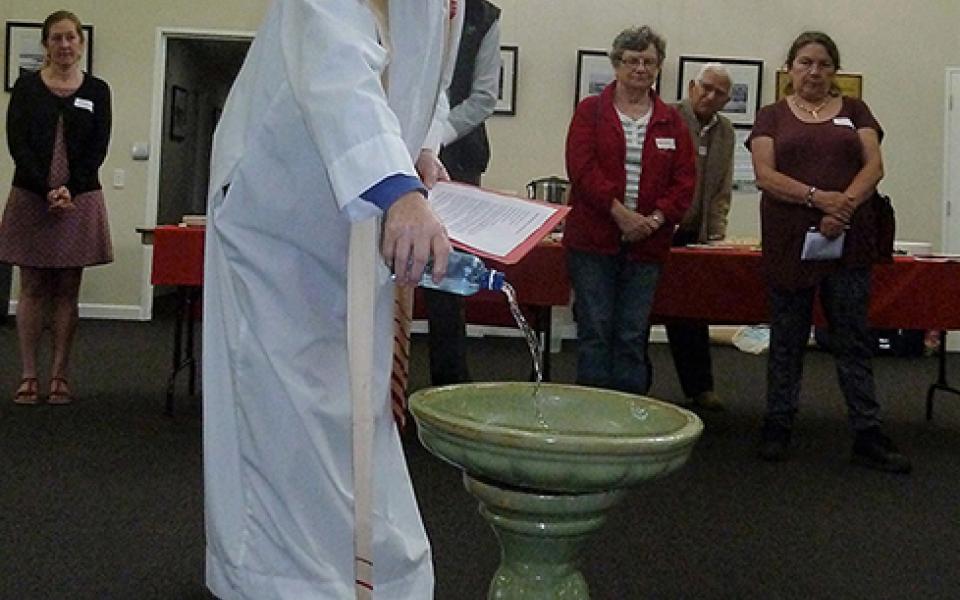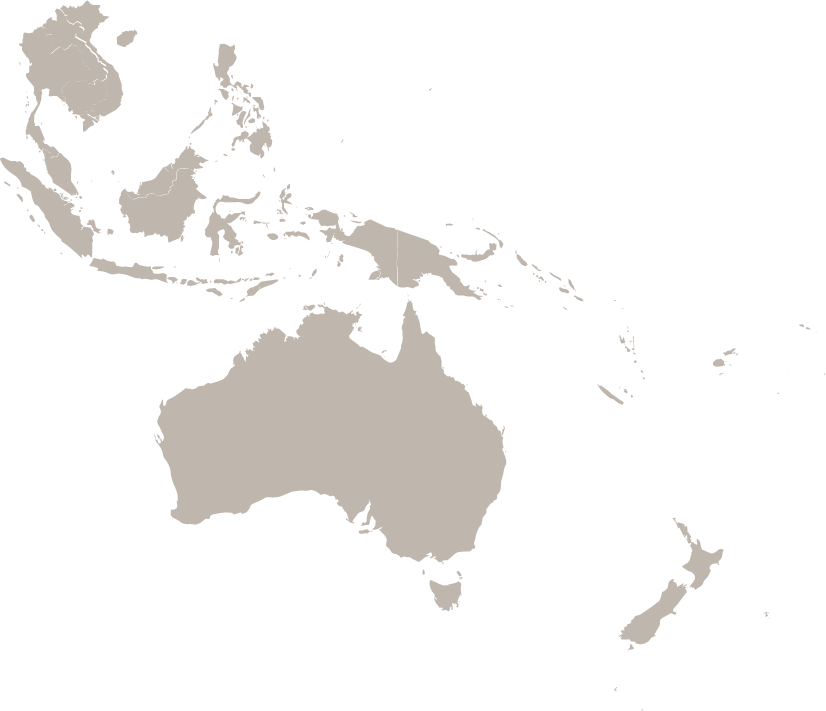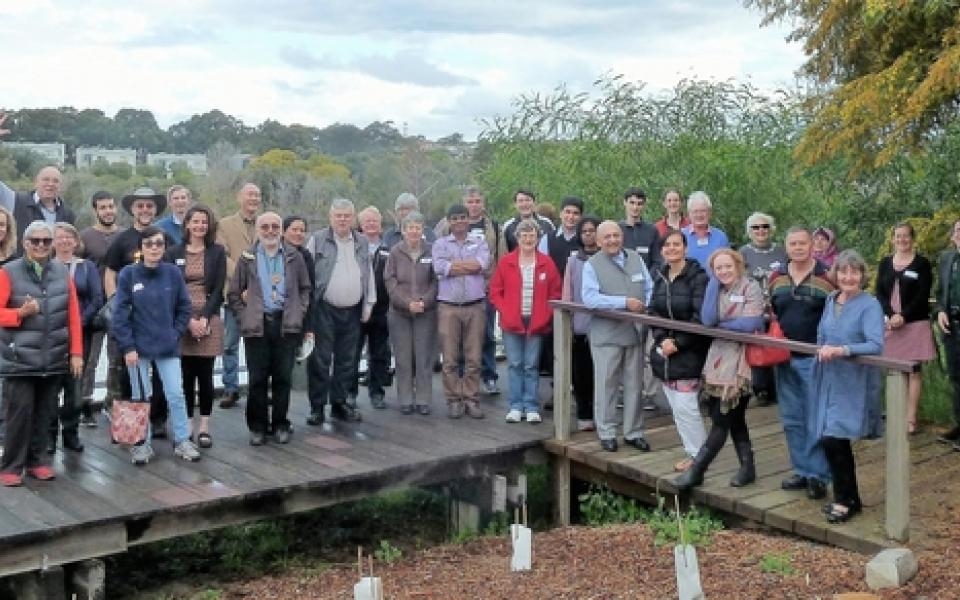
“Within water there is a strange trust. It has faith in itself. It does not insist on any priority of place. It will flow until it finds its own level.”
John O’Donohue, “To Free the Silted Source”
On Sunday 25th September, the Faith Ecology Network (FEN), in partnership with Randwick City Council - Sustainability and Waste team, held an event titled ‘Living Water – Run-off, Rivers & Reefs’. Through this topic we hoped to develop a better understanding of the connection between our inland and coastal waterways and our human agency in the health of these, now and for the future. FEN aims to share a mutual appreciation of religious traditions regarding ecology and strengthen the dialogue between science and faith
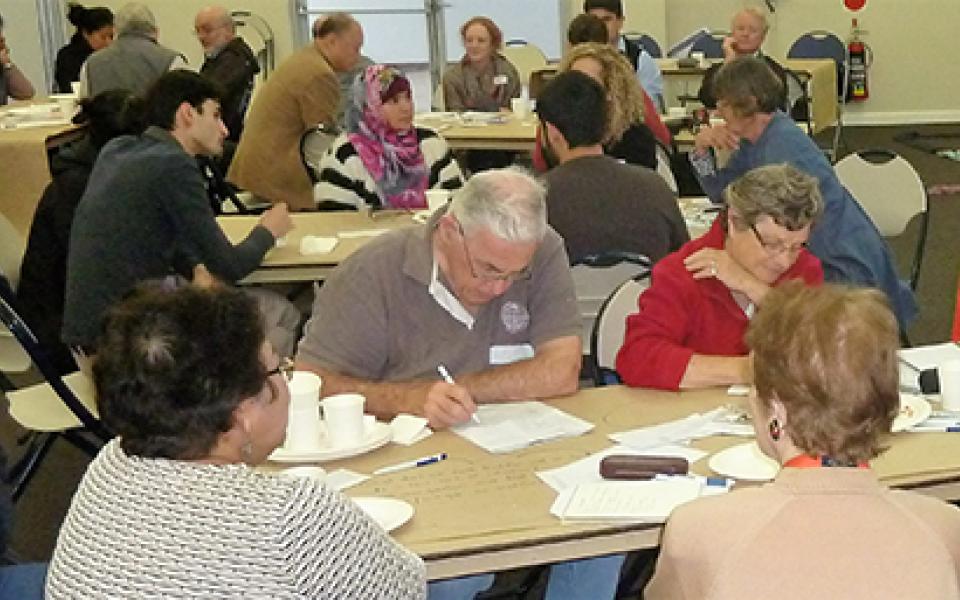
With more than 40 participants from many faith traditions including Aboriginal, Bahai’i, Catholic, Anglican, Uniting Church, Greek Orthodox, Muslim, Jewish and Hindu traditions as well of people of no faith, their presence and participation brought rich dimensions of diversity, acceptance and respect. We gathered to listen to input from scientists and then spent time listening to each other, sharing our experiences and wisdom and committing to actions.
The day was opened with a water ritual performed by representatives from the Aboriginal Hindu, Christian and Muslim faiths and created a sacred and nurturing space for the day.
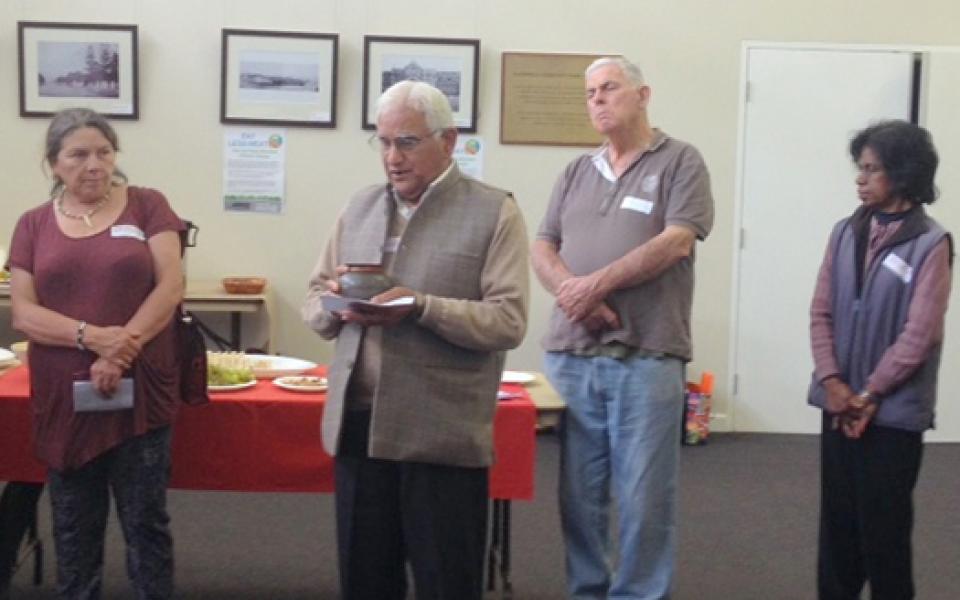
Randwick City Council provided the venue, showcasing many sustainable practices and an ephemeral wetland currently full of water. They also provided two inspiring ecologists and educators: Will Jones, marine scientist who runs the Marine Discovery Centre at Bondi Beach and Renée Ferster-Levy who is a zoologist with a special interest in birds and their behavior.
Much knowledge was shared through the key speaker, Dr Duncan Cook, ACU Deputy Head of the School of Arts (NSW/ACT) and Head of Discipline (Geography) who drew our attention to issues of global inequality in water resources and lead to rich discussion about systems of power, governance and social justice. The preservation of water for the future was also on people’s minds. Will Jones revealed local reefs, the concept of ‘run-in’ and the resulting and frightening pollution from plastics in our oceans. The day was facilitated by Sally Neaves, Sustainability Educator from Rahamim Ecology Centre in Bathurst, who worked with Neil Davidson, key listener, in helping us to share personal responses to the expert input, look at the issues in the broader context and respond from our various faith perspectives and as a converged whole.
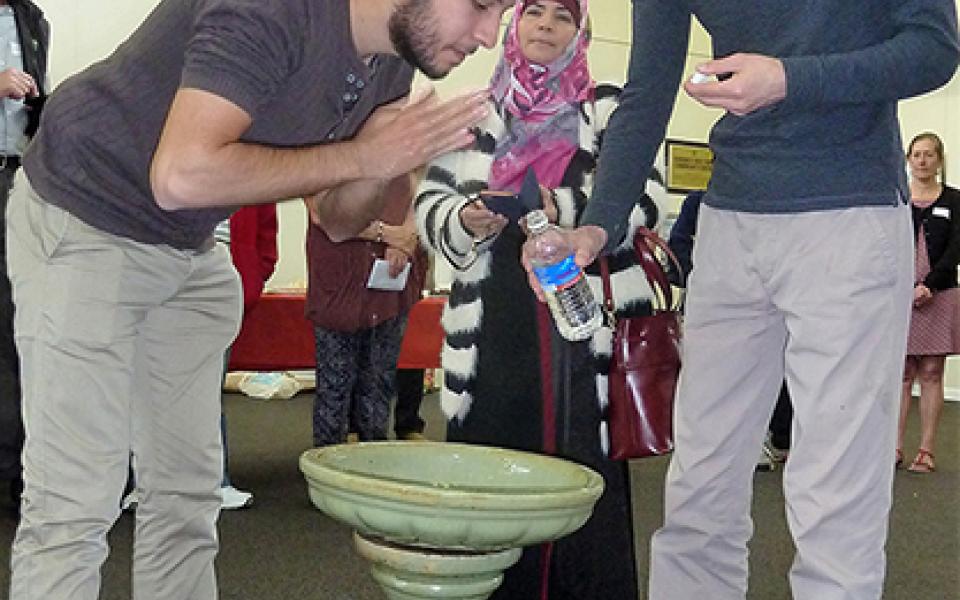
The sun came out for a short while and allowed time for a guided walk out to the wetland with Renée Ferster-Levy and the chance to listen to her speak about the diverse birdlife and for us to hear their calls.
The day can be best summed up by this quote from one of our attendees who commented about their experience of the day “a sense especially of HOPE. Today I encountered a community so diverse yet so united in concern and commitment.” We look forward to the ways in which this day leads us next.
Liesje Barratt
Assistant Network Co-ordinator and Publications Officer
Columban Centre for Peace, Ecology and Justice
